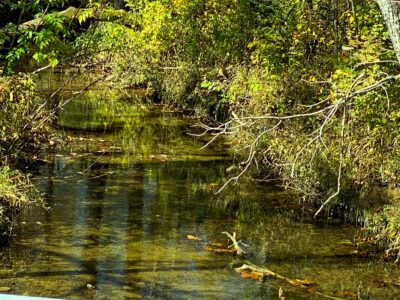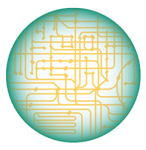Science Focus Area: Lawrence Berkeley National Laboratory
- Principal Investigator: Paul D. Adams1
- Technical Co-Manager: Adam P. Arkin1,2
- Co-Investigators: Nitin S. Baliga3, Adam M. Deutschbauer1, Matthew W. Fields4, Terry C. Hazen5,6, Trent R. Northen1, Michael W. W. Adams7, Romy Chakraborty1, John-Marc Chandonia1, Aindrila Mukhopadhyay1, Vivek K. Mutalik1, David A. Stahl8, Peter J. Walian1, Jizhong Zhou9
- Participating Institutions: 1Lawrence Berkeley National Lab, 2University of California at Berkeley, 3Institute for Systems Biology, 4Montana State University, 5University of Tennessee, 6Oak Ridge National Laboratory, 7University of Georgia, 8University of Washington, 9University of Oklahoma
- Project Website: enigma.lbl.gov
- KBase Collaboration: Improving metagenomics workflows in KBase

The Bear Creek watershed in Oak Ridge, Tenn., a crucial site for the early development of nuclear weapons under the Manhattan Project, harbors extreme geochemical gradients of interest to researchers within the ENIGMA project. [Courtesy University of Tennessee and Oak Ridge National Laboratory ENIGMA collaborating institutions]
Summary
Research within the Ecosystems and Networks Integrated with Genes and Molecular Assemblies (ENIGMA) project emphasizes achieving a multiscale, causal, and predictive understanding of microbial biology and the reciprocal impact of microbial communities on their ecosystems. This Science Focus Area (SFA), led by Lawrence Berkeley National Laboratory, is a multidisciplinary, multi-institutional research consortium with a special focus on processes that affect denitrification and metal reduction. Efforts are centered on studying subsurface microbiomes within the Bear Creek aquifer at the Oak Ridge Reservation (ORR) in East Tennessee, a site with complex contaminant gradients. The contaminants, generated by nuclear material research and production, include nitrates, uranium, and volatile organic carbon species. Their fate and complex dispersal flow paths are mediated by the activity of subsurface microbial communities. To better understand these processes, ENIGMA performs field experiments to measure natural versus anthropogenically perturbed dynamics of geochemical processes and the assembly and activity of microbial communities. SFA researchers infer the most predictive of these chemical, physical, and microbial interactions to estimate the ecological forces that shape microbial community function. Using laboratory studies, the team applies a unique array of culturing, genetic, physiological, computational, and imaging technologies to understand and model gene function and material flow within and among cells, and to map this information back to field studies to determine the causes of environmental observations. The team also investigates how different environmental forces dynamically change geophysical and geochemical features, how these forces disperse materials across the site, and how the genetic makeup of ORR microorganisms adapt to specific environmental conditions and the presence of other microbes. Through these studies and approaches, the SFA can deliver a mechanistic understanding of complex environmental bioprocesses and ecology, ultimately extracting generalizable principles that enable prediction of and intervention in functional microbiome assembly and activity in complex sediment ecosystems.
